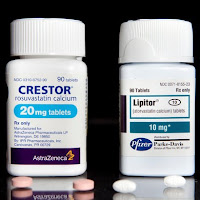By Dr. Katie Lee, DDS
Our brain is the most vital organ (of course, all of them are vital!) in our bodies. The mind and the mouth are more connected than you might have thought, but hey, they are only a few inches away from one another. Actually, our oral health, via the microbiome, is directly connected to the overall health of our bodies. And in the case of our brains, this means the bacteria in our mouth can significantly contribute to one of the most devastating diseases, dementia.
Better oral health equals less pathogenic bacteria, which equals better brain health. And, as we age, the importance of maintaining our minds is non-negotiable!
So let’s get into the connection between oral health and brain health, how to prevent disease, and most importantly, how we can help our loved ones take better care of their oral health and hence, their brain.
The Mouth-Brain Connection
Let’s start by diving into how your mouth affects brain health. The oral cavity has over 700 species of bacteria and other microbes that comprise the oral microbiome. When the microbiome is in balance, called hemostasis, health persists. A healthy microbiome will result in a patient having no new cavities and no signs of gum inflammation or infection. But when the microbiome becomes unbalanced, as often occurs, patients will develop a host of oral diseases such as cavities, periodontal disease and endodontic (root canal) abscesses. These conditions lead to inflammation and the breakdown of our gingival tissues. Subsequently, bacteria that enters our gingival tissues can migrate into our bloodstream. Oral bacteria should not take up residence in places outside the mouth, and when they do, infection, inflammation and disease occurs.
In the case of the brain, we often speak of two specific pathogens that cause the most damage, bacteria Porphyromonas gingivalis (Pg) and Fusobacterium nucleatum (Fn). How bad are these bacteria? A recent study has actually shown that deaths caused by a diagnosis of Alzheimer’s in patients sixty-five and older were associated with antibodies of oral Pg as well as the presence of periodontal disease before dementia. This is because Pg leads to the formation of amyloid plaques (hallmark sign of Alzheimer’s) in the brain and Fn acts as gasoline, throwing fuel onto the fire, accelerating this process. This means oral bacteria are no joke! The good news is, we now have saliva tests that look for the presence of these specific bacteria so that dentists can eradicate them and help prevent diseases like dementia.
While bacteria is the main contributor, lifestyle, diet, and oral habits are all contributors to poor oral health. A diet high in sugar and processed foods, a lifestyle full of stress, poor sleep, and weak oral hygiene habits also contribute to poor oral health, and hence systemic disease. Not only do oral infections spread to the rest of the body, including the brain, but the deterioration and tooth loss derived from gum disease creates poor chewing ability that leads to nutritional deficiencies, often leading to a diet high in processed foods and sugar which has been proven to advance dementia. This, in turn, creates greater cognitive decline, and as cognition declines, oral hygiene declines, which exacerbates all of the aforementioned complications–the cycle continues.
The Big 3
What is dementia, really? Dementia is an all-encompassing term that labels the cognitive decline associated with damaged neurons (brain nerves) and their connections in our brains. Unfortunately, many of us have witnessed a loved one with those all-too-familiar symptoms of a failing memory and personality changes. It’s more than just having a bad memory or forgetting things easily, dementia truly affects and damages cognitive function.
The three main varieties of dementia are Alzheimer’s, vascular dementia, and Parkinson’s.
- Alzheimer’s, accounting for 70 percent of all dementia cases, is typically acquired from a lifetime neural inflammation, which can be caused by a bacterial infection (often from the mouth), poor blood sugar control (diabetes), or even viruses (cold sores). However, there are a number of gene mutations, like ApoE4 (made popular by Chris Hemsworth) that can also lead to an increased risk of early-onset Alzheimer’s.
Alzheimer’s disease is the most common form of dementia and is characterized by complex changes that occur in the brain as a result of cell damage. For example, tau proteins in neurons will detach and become entangled which is toxic to neurons. This will cause the nerve cells to die. The hallmark of Alzheimer’s disease is the presence of beta- amyloid plaques that can form in between neurons which impairs their ability to communicate with each other, leading to memory loss and cognitive decline.
To really understand Alzheimer’s, we need to understand the blood-brain barrier. The BBB is a semi permeable membrane that allows certain substances into the brain (think glucose, oxygen, anti anxiety medications, caffeine, alcohol) to affect the brain and keeps harmful materials out (bacteria, viruses, fungi). Our brains also need cholesterol in order for our neurons to function properly and the brain can synthesize its own cholesterol in addition to what is transported in. The blood-brain barrier can be broken down by bacteria, stress, inflammation, diseases, smoking, and having the ApoE4 mutation (which is responsible for cholesterol transport in the brain). A leaky blood-brain barrier disrupts the brain’s ability to protect its local cholesterol and structures and can therefore lead to neurodegenerative diseases. - Vascular dementia is often caused by a reduction of blood flow to the brain, usually as a result of obstructive sleep apnea, chronic inflammation of blood vessels, smoking, high blood pressure, being overweight, and having diabetes (dementia is often considered the “diabetes of the brain”). In particular, these patients may experience more problem-solving issues over general memory loss.
- The final major type of dementia is a result of Parkinson’s disease. Scientists are still unsure what causes it, but whatever the origin, Parkinson’s disease occurs when the nerve cells become damaged or die off, which decreases dopamine in the brain (dopamine smooths our muscle functions). A classic symptom of Parkinson’s is seeing someone with a tremor. Due to their poor motor function, Parkinson’s patients often also develop poorer and poorer oral hygiene as the disease develops, which further exacerbates the issue as oral bacteria causes neural inflammation.
Why are elderly most affected?
As a patient’s cognitive ability declines, so does their oral hygiene, causing more bacteria to invade, which progresses dementia even further, and so on and so on… Now we have compounding effects atop compounding effects. Starting to get the picture?
So let’s talk about the main reasons that dementia patients are primarily older.
- Reason #1: the older someone is, the more likely they are to have an oral or systemic disease, which we now know is related to dementia.
- Reason #2: the elderly are the most likely to have missing teeth, whether that be from prolonged gum disease, cavities or infections, or just having lived longer and experienced more accidents and wear and tear. Missing teeth leads to digestive and nutritional problems which affect brain health.
- Reason #3: the elderly often experience a loss in community and social interactions which is critical to maintaining cognitive function and healthspan.
Researchers have found that adults with missing teeth are 48 percent more likely to develop cognitive impairment and 28 percent more likely to develop dementia. Why? If you’re unable to chew healthy, nutritious foods it’s easy to turn to high-carb processed snacks that are easier to swallow. This leads to a spike in blood glucose levels, hence the condition, “diabetes of the brain”. No nutrients mean more inflammation!
So What Can We Do?
Here’s the good news– 1/3 of all Alzheimer’s cases are preventable just by keeping Pg and Fn bacteria and blood glucose low. So this means you can’t skimp on your oral hygiene routine. Taking care of your brain health starts at home with the simple act of brushing your teeth–or helping an elderly parent brush theirs. Just by brushing regularly you can eliminate those blood-surfing bacteria (Pg and Fn) that could infiltrate your brain.
- Brushing- patients must brush for two minutes twice a day, minimum with an electric toothbrush. An electric toothbrush will help improve the efficacy of brushing because it has a timer (do not stop until it turns off) and it will signal each time the patient needs to switch quadrants which is helpful for all patients.
- Flossing– I know we all drag our feet to do it–needs to be a big part of your daily routine. As people age, flossing becomes more difficult as dexterity (and cognition) decline. If flossing isn’t an option, I suggest using a waterpik, air flosser, or proxy brush (brushes that fit in between your teeth). Our teeth have five surfaces, two of which cannot be reached with a toothbrush and which have the highest relation to gum disease! So we must clean these two surfaces (in between the teeth) with the above tools. Dentists have a saying, “only floss the teeth you want to keep”- it’s that important.
- Mouthwash (alcohol-free!)- rinse away any remaining bacteria that was not removed during the prior two steps. Make sure the mouthwash is alcohol free as alcohol destroys the good bacteria in the microbiome.
- Tongue scraping- our tongue has its own bacterial population that is different from our teeth and gums, so it is important to clean it. I recommend using a tongue scraper twice a day to remove the plaque and bacteria on our tongue. As patients age or develop dry mouth, fungus called Candida often develops in the mouth which can easily spread to the sinuses and the brain causing neural inflammation. Scraping the tongue will reduce the chance of a fungal infection, improve the smell of breath, and make food taste better!
- Saliva testing– As I mentioned before, we have saliva tests that can test the oral microbiome for the presence of Pg and Fn. Any patient that has a systemic disease, bleeding gums, or is concerned about their cognitive health or the health of their loved ones should get a saliva test! It is one of the only procedures in dentistry that is affordable and painless (yes, I am aware that dentists are known for causing pain!). This test can literally help prevent cognitive decline for you and your loved ones. Remember, once the brain is gone, it’s gone!

On top of your at-home routine, you need to see your dentist at the very minimum twice a year…but as you or your loved ones age, I really suggest upping the frequency of your visits to 3-4 times a year. There is no harm in going to see your dentist more often. The small increase in pay for the extra cleanings will save you tens of thousands of dollars in restorative dental and medical care in the future (and prevent systemic disease!). People spend more money on their wardrobe for the year than their oral health care which is proven to massively reduce the risk of incurable systemic disease.
How Your Teeth Can Save Your Life
This doesn’t have to happen to you or your loved ones! Awareness is the first step. And there are tools that can help you prevent this awful disease that is on the rise in the US. Your dentist can help to get you on a daily oral hygiene routine, identify signs of infection, and test for bacteria that can impact your brain health. Good oral health means good brain health. Our brains need to be protected at all costs, so start with the simple and easy steps to keep your mouth and teeth (and I mean keeping most of your teeth as you age) healthy for years to come.
Want to know more about the connection between oral health and brain health? Then grab a copy of my book, Saved By The Mouth, which explains the relationship between oral health and systemic disease. Curious if you or your loved ones have bacteria in your mouth that can lead to dementia? Get your saliva test today!
As a dentist, I’ve seen firsthand how tooth decay and tooth loss can put you in the grave expeditiously. Now, I advise my elderly patients to keep their teeth at all costs. If you want to live a long and healthy life, mind your teeth! I know: I’m a dentist, and of course I’d say that. But there is a direct correlation between the number of teeth you retain and the average number of years lived. Studies clearly show a 4 percent increase in the five-year survival rate per additional tooth retained at the age of seventy. The tipping point for survival is keeping at least twenty teeth. This means taking proper care of your teeth can actually SAVE your life.













Wished I had known this excellent information years ago. Thank you for making me aware now!!!!
We are so glad to see that this science is being published. We recommend a cone beam CT for almost all of our clients, especially if they have root canals. Dr Sam Peterson is working hard to help the American Dental Society step up their game and alert patients to the dangers of root canals (and stop doing them!). He has stated that it’s not a matter of “If” your root canal will cause problems with brain health, it’s a matter of “When”. I’ve personally seen clients diagnosed with PD have dramatic reduction of symptoms when old root canals with cavitations were extracted.